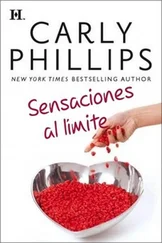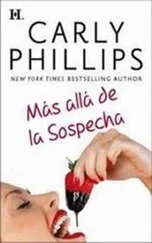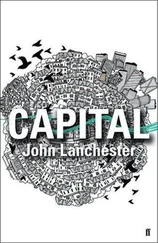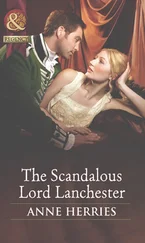Mr Phillips plods on past the expensive shops at the top end of Sloane Street, then down past the mansion blocks and private gardens, towards the permanent traffic jam of Sloane Square. The rent and rates around here must be astronomical, invisibly pushing up the prices of every frock, every watch, every cappuccino. It occurs to Mr Phillips that what Martin wants is to have enough money to feel at ease in places like this; to feel that, if he sees something he wants, he can simply go into a shop and buy it, without a qualm. So that places which to most people would seem to be excluding them would be open and welcoming to him, and that London would be transparent, a city of open doors.
At the pedestrian crossing in front of Mr Phillips, a girl in a Union Jack T-shirt and Doc Martens is wearing the day’s second candidate for the shortest skirt he has ever seen, so short that you could see the downward bulge of her pubic mound, her cunt. Was this supposed to be the effect?
In the corner of Sloane Square, overtaking the gridlocked, honking traffic on foot, Mr Phillips passes a pub most of whose customers have spilled out on to the street. These people aren’t hurrying home; not a bit of it. Many of them are office workers, mostly young. The men who wore jackets and ties to work have taken their jackets off and loosened their ties, the men who wore just T-shirts or shirts are now, most of them, bare chested, and either veal-coloured or bright pink. The women are cheerful and jaunty and eager to keep up, mainly with brightly coloured fizzy drinks but with an occasional defiant pint drinker among them. Mr Phillips was at one point — after marriage, up to the time Martin was born — a great one for stopping off after work for a couple of pints, bitter in those days, especially on Friday nights. Mrs Phillips never complained, though she might have had reason to resent the implication that he would rather spend two or three hours in the company of people he spent the whole working week with anyway, and then come home smelling of beer and smoke, when he could simply go straight home and be with her. In those days it had been as if work and pubs were mainly things men did to keep away from women. That looks different now. The women seem just as noisy, just as confident, and just as keen on having a good time. It is hard to tell what they are getting away from.
The truth is, Mr Phillips feels that he could murder a pint of lager. And why not? He sidesteps his way through the energetically boozing, laughing, flirting, gossiping loose scrum outside the pub and pushes into the dark interior. Here there is a wall of cigarette smoke, loud Martin-type pop music, fruit machines twinkling brightly in the half-gloom, and fewer people than there are out on the pavement. The drinkers outside in the street seem recreational; those inside are more businesslike. At the bar, a group of men who have made an early start and are already quite drunk are arguing over an article about football in the Evening Standard.
‘He’d never fucking have. He just wouldn’t,’ says a man in a yellow sweatshirt leaning back against the bar with his elbows on the counter — an oddly upper-class pose.
‘It says here he fucking was,’ says the man brandishing the newspaper.
‘He’s capable of fucking anything,’ grumbles a third into the glass he was raising to his mouth. ‘The cunt.’
‘Well as far as I’m concerned he can fuck off,’ says the first man.
‘Now you’ve said something I agree with,’ says the paper-brandishing man to general agreement.
The two bar staff are keeping well out of range of this, at the other end of the counter. Mr Phillips tries leaning over the bar, the edge jabbing into the uppermost part of his stomach in a not unpleasant way, and smiling in their general direction. It does not work.
‘Excuse me,’ he finally calls out, the demand sounding more like an apology than he means it to. One of the barmen looks over at him and with visible reluctance breaks off his conversation to come and attend to Mr Phillips. He is wearing what is supposed to be a uniform of white short-sleeved shirt and black trousers, but is doing so with an unbuttoned dishevelment that is clearly meant to be insubordinate. When he gets opposite Mr Phillips he simply raises his eyebrows. He is chewing gum.
‘Pint of lager,’ says Mr Phillips, consciously and effortfully repressing the impulse to say ‘please’. The youth takes a glass up from beneath the counter, holds it under the brightly neon-decorated handle and flicks the beer pump on with his spare hand. The urban day is full of moments like these, when conversation and social exchange would be natural, but don’t happen, because of the weight of the city pressing down on every interaction. If you started talking to strangers, where would it stop? Somewhere in his heart Mr Phillips has a fantasy of a country life that is different, where the shopkeeper bored you rigid for ten minutes on the subject of how he had been swindled out of third prize for his competition turnips at the county show when you popped in to get a pint of semi-skimmed milk, and where every visit to the pub was a long, warm bath-like soak in collective and individual grievances against outsiders, landowners, the council, the government, the European Union, in short anyone not present; a life where you nodded at and chatted to everyone you bumped into — except people with whom you were in mid-feud — as a matter of course. And perhaps that life or a version of it is now possible, if they cash in the £100,000 of the redeemed part of their mortgage and buy a place in the country. Not the south-east — for that kind of money it would have to be somewhere pretty but cheap; say Herefordshire, a little stone town house or an old post office or a comfy new bungalow. Mrs Phillips could tout for music lessons — it wouldn’t be that difficult, people would be looking for things to do — Thomas would go to the local school for what would after all only be one more year, Mr Phillips would set himself up as a posh London chartered accountant doing a favour for the rustics. He wouldn’t put it quite like that but that would be the gist. The country must be full of clueless self-employed people in need of help with their sums. Everything is possible.
‘Two pounds fifteen,’ says the bartender, spilling some lager as he puts the astonishingly expensive pint down on a little rubber mat in front of Mr Phillips. Raising his eyebrows to register a dignified protest, Mr Phillips reaches for his wallet and as he does so realizes that he has forgotten to check his balance, the whole official reason for his expedition into the bank in the first place. Keeping his five pound note for dealings with politer tradesmen, he hands over a twenty. It’s a badly crumpled note, a reminder, among other things, of how amazingly resilient is the paper used in making money.
‘Got anything smaller?’ sneers the young man.
Not for nothing a born Londoner, Mr Phillips has his own reserves of rudeness. Looking straight and expressionlessly at the bartender he very slowly shakes his head. (This despite the bus change which is still heavy in his trouser pocket. But there comes a time when you have to make a stand.) The bartender goes off and does noisy things at the electronic till, coming back with a ten pound note and a large fistful of coins.
‘No fives,’ says the youth, holding out a fistful of coins palm downwards and decanting them into the upturned cup of Mr Phillips’s hands. Mr Phillips forwards the small avalanche of metal into his pocket. He takes his drink out from the depressing interior of the pub past the sign saying No Drinking On The Pavement into the happy throng of people drinking on the pavement. He finds a small patch of wall with a ledge and puts his drink on it, and then puts down his briefcase to mark his territory. A few feet away, an after-office group are roaring at one of their colleagues who is doing an impersonation of a man performing Chinese martial arts exercises in slow motion. He is standing on one foot with both arms above his head, puffing out his mouth and making a high-pitched mewing sound.
Читать дальше
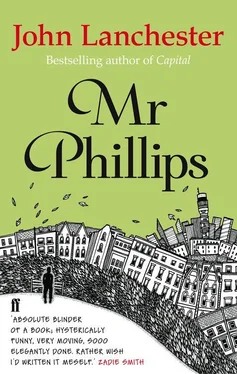



![Unknown - [Carly Phillips] The Bachelor (The Chandler Brothe(Bookos.org) (1)](/books/174132/unknown-carly-phillips-the-bachelor-the-chandle-thumb.webp)
